#Great Pacific Books !! books
Text
being back on my hbo war bullshit rn (jk im never not on my hbo war bullshit) seems like a good time to mention the very cool jacob vouza, a native of guadalcanal. from 1916 onwards he was part of the island's constable force, aka the system of policemen and law enforcers run by the colonial government, which was a scattering of primarily british and australian military and bureaucratic personnel, such as coastwatcher martin clemens (who wrote a great book about his experiences spying on the japanese).
the pacific (the hbo show, i mean) has a good number of narrative faults, but one of its most egregious content faults imo is its complete lack of acknowledgement of the native solomon islanders who were not just instrumental to the american victory, but utterly indispensible. without their knowledge of the terrain, their protection, guidance, and supplying of the coastwatchers who provided pivotal intel on japanese troop/air/naval movement ("forty bombers heading yours"), and their constant rescuing of stranded american troops (particularly air and navy men, including 26yo jfk) and white civilians, it is genuinely questionable how much longer or worse the war might have ended up being.
jacob vouza (whom martin clemens described as incredibly loyal, cheerful, brave, a fierce individualist, and tremendously skilled in bushcraft) had retired from the constabulary pre-war, but rejoined a year later when the japanese landed on guadalcanal. he helped clemens escape into the jungle, then eventually helped him reach the american lines safely. afterwards, he oversaw a network of native scouts and participated in regular spying missions, gathering information on japanese troop movements. on one of these missions, he was apprehended by the japanese, who found a tiny american flag in his possession. they tied him up and interrogated him. he refused to give them any information on the americans, despite being tortured for hours with beatings, stabbings, hanging, and being forced to lie on a red ant hill with open wounds. eventually, having bayoneted him in the limbs, face, throat, and stomach, the japanese left him for dead. he chewed through his bindings and escaped into the jungle, where he made his way for three miles through an active battlefield to the american lines. upon reaching the marines, he refused medical treatment until he could personally deliver a message to clemens and the commander of the 2nd battalion 1st marines. despite being unable to stand and barely able to speak through the wound in his throat, he informed them that the japanese were massing for a huge, imminent assault on the critical american-held henderson airfield. he described the japanese numbers, positions, and weaponry. he also dictated a final message to his wife and children, which clemens wrote down with one hand, while holding vouza's hand with the other. his warning came only about ten minutes ahead of the japanese attack, but that was just enough time for the marines to assemble a successful defense in the correct place.
vouza was quickly rushed to field surgery and received a massive transfusion (tangentially, this was in the time of a segregated american military, in which it was illegal for black and white soldiers to provide one another blood transfusions; although vouza was not considered black per se by the american military, it's nonetheless a notable element of the cultural landscape at the time), which saved his life. later, he was awarded a number of medals from both the american and british governments, including the silver star. in 1979, clemens successfully campaigned to have him knighted. following vouza's death in 1984, clemens also organised the installation of a commemorative memorial in his hometown.
it's remarkable (derogatory) to me that the pacific (the show), despite its amazing dedication in general to accuracy and exhaustive detail, didn't say a peep about jacob vouza (or any native person whatsoever), despite spending most of episode 2 re-enacting this specific battle. his actions weren't just a footnote, but genuinely the crux of the american victory. he was a very incredible person, one of the many examples of contributions native solomon islanders made to the war effort, and we should remember him accordingly!
#most of this info comes directly from martin clemens' book 'alone on guadalcanal'#it really is a great book! racist in its own way of course (see: the title) but for the time and circumstances honestly pretty equitable#eg clemens does explicitly note that the title is disingenuous considering the many native people he depended on for his survival#lonely vigil by walter lord is also a fantastic read about the coastwatchers in general#guadalcanal#the pacific#hbo war#jacob vouza
10 notes
·
View notes
Text
naming the hot necromancer scientist lesbian in this new book Persinna so her nickname can be Percy
#pacific rim with cannibalism book#the he/him lesbian is named eulalia i'm having a GREAT time#she's technically not a necromancer she only does necromancy the one time#so#but still#writing tag
2 notes
·
View notes
Text
17/12/23 this masterlist has been completely, vetted, revamped and reformatted with free access to all reading and viewing material. It will be updated and edited periodically so please click on my username and reblog the current version directly from me if you're able.
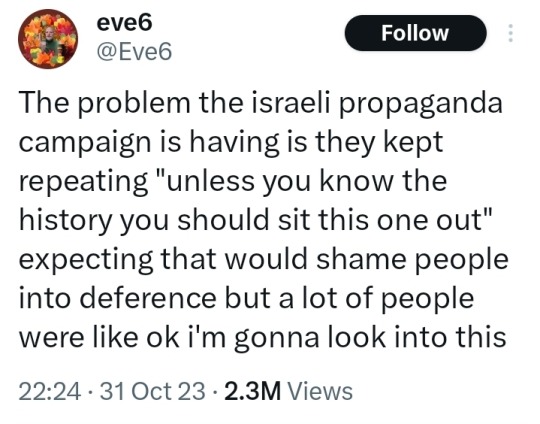
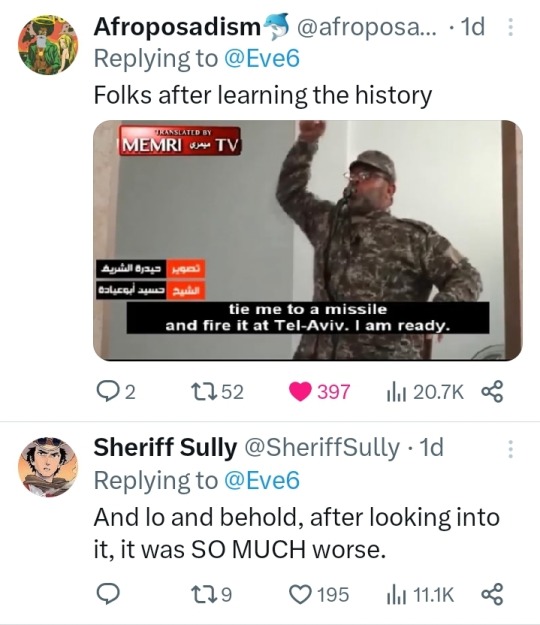

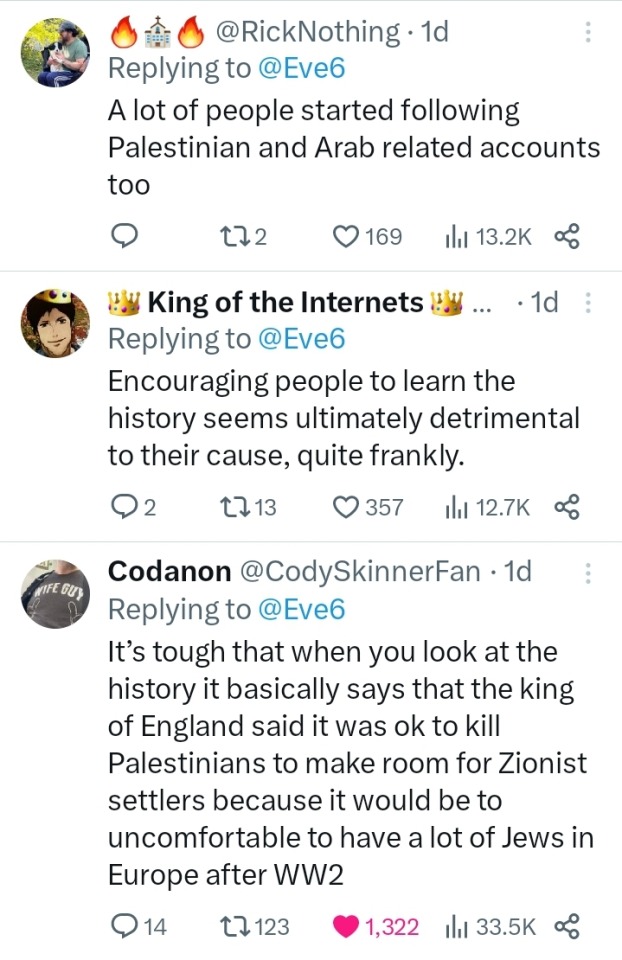
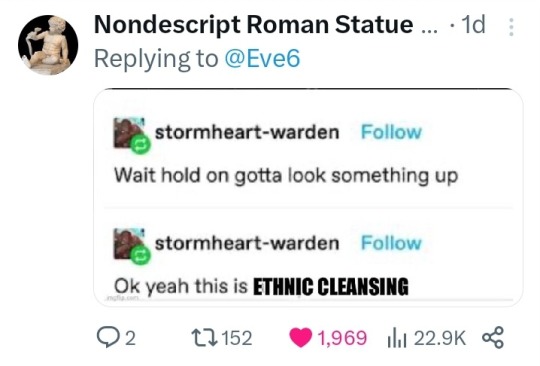
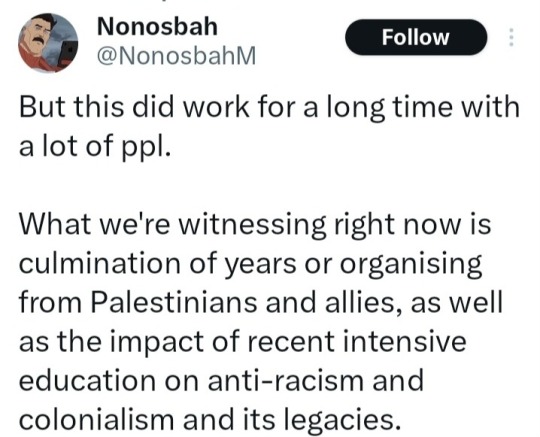
The Big Damn List Of Stuff They Said You Didn't Know
(Yes, it's a lot. Just choose your preferred medium and then pick one.)
Podcasts
Backgrounders and Quick Facts
Interactive Maps
Teach-Out Resources
Reading Material (free)
Films and Documentaries (free)
Non-Governmental Organizations
Social Media
How You Can Help
Podcasts
Cocktails & Capitalism: The Story of Palestine Part 1, Part 3
It Could Happen Here: The Cheapest Land is Bought with Blood, Part 2, The Balfour Declaration
Citations Needed: Media narratives and consent manufacturing around Israel-Palestine and the Gaza Siege
The Deprogram: Free Palestine, ft. decolonizatepalestine.com.
Backgrounders and Quick Facts
The Palestine Academy: Palestine 101
Institute for Middle East Understanding: Explainers and Quick Facts
Interactive Maps
Visualizing Palestine
Teach-Out Resources
1) Cambridge UCU and Pal Society
Palestine 101
Intro to Palestine Film + Art + Literature
Resources for Organising and Facilitating)
2) The Jadaliya YouTube Channel of the Arab Studies Institute
Gaza in Context Teach-in series
War on Palestine podcast
Updates and Discussions of news with co-editors Noura Erakat and Mouin Rabbani.
3) The Palestine Directory
History (virtual tours, digital archives, The Palestine Oral History Project, Documenting Palestine, Queering Palestine)
Cultural History (Palestine Open Maps, Overdue Books Zine, Palestine Poster Project)
Contemporary Voices in the Arts
Get Involved: NGOs and campaigns to help and support.
3) PalQuest Interactive Encyclopedia of the Palestine Question.
4) The Palestine Remix by Al Jazeera
Books and Articles
Free reading material
My Gdrive of Palestine/Decolonization Literature (nearly all the books recommended below + books from other recommended lists)
Five free eBooks by Verso
Three Free eBooks on Palestine by Haymarket
LGBT Activist Scott Long's Google Drive of Palestine Freedom Struggle Resources
Recommended Reading List
Academic Books
Edward Said (1979) The Question of Palestine, Random House
Ilan Pappé (2002)(ed) The Israel/Palestine Question, Routledge
Ilan Pappé (2006) The Ethnic Cleansing of Palestine, OneWorld Publications
Ilan Pappé (2011) The Forgotten Palestinians: A History of the Palestinians in Israel, Yale University Press
Ilan Pappé (2015) The Idea of Israel: A History of Power and Knowledge, Verso Books
Ilan Pappé (2017) The Biggest Prison On Earth: A History Of The Occupied Territories, OneWorld Publications
Ilan Pappé (2022) A History of Modern Palestine, Cambridge University Press
Rosemary Sayigh (2007) The Palestinians: From Peasants to Revolutionaries, Bloomsbury
Andrew Ross (2019) Stone Men: the Palestinians who Built Israel, Verso Books
Rashid Khalidi (2020) The Hundred Years’ War on Palestine: A History of Settler Colonialism and Resistance 1917–2017
Ariella Azoulay (2011) From Palestine to Israel: A Photographic Record of Destruction and State Formation, 1947-1950, Pluto Press
Ariella Azoulay and Adi Ophir (2012) The One-State Condition: Occupation and Democracy in Israel/Palestine, Stanford University Press.
Jeff Halper (2010) An Israeli in Palestine: Resisting Dispossession, Redeeming Israel, Pluto Press
Jeff Halper (2015) War Against the People: Israel, the Palestinians and Global Pacification
Jeff Halper (2021) Decolonizing Israel, Liberating Palestine: Zionism, Settler Colonialism, and the Case for One Democratic State, Pluto Press
Anthony Loewenstein (2023) The Palestine Laboratory: How Israel exports the Technology of Occupation around the World
Noura Erakat (2019) Justice for Some: Law and the Question of Palestine, Stanford University Press
Neve Gordon (2008) Israel’s Occupation, University of California Press
Joseph Massad (2006) The Persistence of the Palestinian Question: Essays on Zionism and the Palestinians, Routledge
Memoirs
Edward Said (1986) After the Last Sky: Palestine Lives, Columbia University PEdward Saidress
Edward Said (2000) Out of Place; A Memoir, First Vintage Books
Mourid Barghouti (2005) I saw Ramallah, Bloomsbury
Hatim Kanaaneh (2008) A Doctor in Galilee: The Life and Struggle of a Palestinian in Israel, Pluto Press
Raja Shehadeh (2008) Palestinian Walks: Into a Vanishing Landscape, Profile Books
Ghada Karmi (2009) In Search of Fatima: A Palestinian Story, Verso Books
Vittorio Arrigoni (2010) Gaza Stay Human, Kube Publishing
Ramzy Baroud (2010) My Father Was a Freedom Fighter: Gaza's Untold Story, Pluto Press
Izzeldin Abuelaish (2011) I Shall Not Hate: A Gaza Doctor’s Journey on the Road to Peace and Human Dignity, Bloomsbury
Atef Abu Saif (2015) The Drone Eats with Me: A Gaza Diary, Beacon Press
Anthologies
Voices from Gaza - Insaniyyat (The Society of Palestinian Anthropologists)
Letters From Gaza • Protean Magazine
Salma Khadra Jayyusi (1992) Anthology of Modern Palestinian Literature, Columbia University Press
ASHTAR Theatre (2010) The Gaza Monologues
Refaat Alreer (ed) (2014) Gaza Writes Back, Just World Books
Refaat Alreer, Laila El-Haddad (eds) (2015) Gaza Unsilenced, Just World Books
Cate Malek and Mateo Hoke (eds)(2015) Palestine Speaks: Narrative of Life under Occupation, Verso Books
Jehad Abusalim, Jennifer Bing (eds) (2022) Light in Gaza: Writings Born of Fire, Haymarket Books
Short Story Collections
Ghassan Kanafani, Hilary Kilpatrick (trans) (1968) Men in the Sun and Other Palestinian Stories, Lynne Rienner Publishers
Ghassan Kanafani, Barbara Harlow, Karen E. Riley (trans) (2000) Palestine’s Children: Returning to Haifa and Other Stories, Lynne Rienner Publishers
Atef Abu Saif (2014) The Book of Gaza: A City in Short Fiction, Comma Press
Samira Azzam, Ranya Abdelrahman (trans) (2022) Out Of Time: The Collected Short Stories of Samira Azzam
Sonia Sulaiman (2023) Muneera and the Moon; Stories Inspired by Palestinian Folklore
Essay Collections
Edward W. Said (2000) Reflections on Exile and Other Essays, Harvard University Press
Salim Tamari (2008) Mountain against the Sea: Essays on Palestinian Society and Culture, University of California Press
Fatma Kassem (2011) Palestinian Women: Narratives, histories and gendered memory, Bloombsbury
Ramzy Baroud (2019) These Chains Will Be Broken: Palestinian Stories of Struggle and Defiance in Israeli Prisons, Clarity Press
Novels
Sahar Khalifeh (1976) Wild Thorns, Saqi Books
Liyana Badr (1993) A Balcony over the Fakihani, Interlink Books
Hala Alyan (2017) Salt Houses, Harper Books
Susan Abulhawa (2011) Mornings in Jenin, Bloomsbury
Susan Abulhawa (2020) Against the Loveless World, Bloomsbury
Graphic novels
Joe Sacco (2001) Palestine
Joe Sacco (2010) Footnotes in Gaza
Naji al-Ali (2009) A Child in Palestine, Verso Books
Mohammad Sabaaneh (2021) Power Born of Dreams: My Story is Palestine, Street Noise Book*
Poetry
Fady Joudah (2008) The Earth in the Attic, Sheridan Books,
Ghassan Zaqtan, Fady Joudah (trans) (2012) Like a Straw Bird It Follows Me and Other Poems, Yale University Press
Hala Alyan (2013) Atrium: Poems, Three Rooms Press*
Mohammed El-Kurd (2021) Rifqa, Haymarket Books
Mosab Abu Toha (2022) Things You May Find Hidden in My Ear: Poems from Gaza, City Lights Publishers
Tawfiq Zayyad (2023) We Are Here to Stay, Smokestack Books*
The Works of Mahmoud Darwish
Poems
Rafeef Ziadah (2011) We Teach Life, Sir
Nasser Rabah (2022) In the Endless War
Refaat Alareer (2011) If I Must Die
Hiba Abu Nada (2023) I Grant You Refuge/ Not Just Passing
[All books except the ones starred are available in my gdrive. I'm adding more each day. But please try and buy whatever you're able or borrow from the library. Most should be available in the discounted Free Palestine Reading List by Pluto Press, Verso and Haymarket Books.]
Human Rights Reports & Documents
Information on current International Court of Justice case on ‘Legal Consequences arising from the Policies and Practices of Israel in the Occupied Palestinian Territory, including East Jerusalem’
UN Commission of Inquiry Report 2022
UN Special Rapporteur Report on Apartheid 2022
Amnesty International Report on Apartheid 2022
Human Rights Watch Report on Apartheid 2021
Report of the United Nations Fact-Finding Mission on the Gaza Conflict’ 2009 (‘The Goldstone Report’)
Advisory Opinion on the Legal Consequences of the Construction of a Wall in the Occupied Palestinian Territory, International Court of Justice, 9 July 2004
Films
Documentaries
Jenin, Jenin (2003) dir. Mohammed Bakri
Massacre (2005) dir. Monica Borgmann, Lokman Slim, Hermann Theissen
Slingshot HipHop (2008) dir. Jackie Reem Salloum
Waltz with Bashir (2008) dir. Ari Folman † (also on Amazon Prime)
Tears of Gaza (2010) dir. Vibeke Løkkeberg (also on Amazon Prime)
5 Broken Cameras (2011) dir. Emad Burnat (also on Amazon Prime)
The Gatekeepers (2012) dir. Dror Moreh (also on Amazon Prime)
The Great Book Robbery (2012) | Al Jazeera English
Al Nakba (2013) | Al Jazeera (5-episode docu-series)
The Village Under the Forest (2013) dir. Mark J. Kaplan
Where Should The Birds Fly (2013) dir. Fida Qishta
Naila and the Uprising (2017) (also on Amazon Prime)
GAZA (2019) dir. Andrew McConnell and Garry Keane
Gaza Fights For Freedom (2019) dir. Abby Martin
Little Palestine: Diary Of A Siege (2021) dir. Abdallah Al Khatib
Palestine 1920: The Other Side of the Palestinian Story (2021) | Al Jazeera World Documentary
Gaza Fights Back (2021) | MintPress News Original Documentary | dir. Dan Cohen
Innocence (2022) dir. Guy Davidi
Short Films
Fatenah (2009) dir. Ahmad Habash
Gaza-London (2009) dir. Dina Hamdan
Condom Lead (2013) dir. Tarzan Nasser, Arab Nasser
OBAIDA (2019) | Defence for Children Palestine
Theatrical Films
Divine Intervention (2002) | dir. Elia Suleiman (also on Netflix)
Paradise Now (2005) dir Hany Abu-Assad (also on Amazon Prime)
Lemon Tree (2008) (choose auto translate for English subs) (also on Amazon Prime)
It Must Be Heaven (2009) | dir. Elia Suleiman †
The Promise (2010) mini-series dir. Peter Kosminsky (Part 1, Part 2, Part 3, Part 4)
Habibi (2011)* dir. Susan Youssef
Omar (2013)* dir. Hany Abu-Assad †
3000 Nights (2015)* dir. Mai Masri
Foxtrot (2017) dir. Samuel Maoz (also on Amazon Prime)
The Time that Remains (2019) dir. Elia Suleiman †
Gaza Mon Amour (2020) dir. Tarzan Nasser, Arab Nasser †
The Viewing Booth (2020) dir. Ra'anan Alexandrowicz (on Amazon Prime and Apple TV)
Farha (2021)* | dir. Darin J. Sallam
Palestine Film Institute Archive
All links are for free viewing. The ones marked with a star (*) can be found on Netflix, while the ones marked † can be downloaded for free from my Mega account.
If you find Guy Davidi's Innocence anywhere please let me know, I can't find it for streaming or download even to rent or buy.
In 2018, BDS urged Netflix to dump Fauda, a series created by former members of IOF death squads that legitimizes and promotes racist violence and war crimes, to no avail. Please warn others to not give this series any views. BDS has not called for a boycott of Netflix. ]
NGOs
The Boycott, Divestment, Sanctions (BDS) Movement
Medical Aid for Palestinians
Euro-Mediterranean Human Rights Monitor
Palestine Defence for Children International
Palestinian Feminist Collective
Al-Shabaka: The Palestinian Policy Network
Addameer Prisoner Support and Human Rights Association
Institute for Palestine Studies
Al Haq
Artists for Palestine
The Palestine Museum
Jewish Currents
B’Tselem
DAWN
Social Media
Palestnians on Tumblr
@el-shab-hussein
@killyfromblame
@apollos-olives
@fairuzfan
@palipunk
@sar-soor
@nabulsi
@ibtisams
@wearenotjustnumbers2
@90-ghost (is in Gaza right now. Please donate to his GFM and boost it.)
@tamarrud
Allies and advocates (not Palestinian)
@bloglikeanegyptian beautiful posts that read like op-eds
@vyorei daily news roundups
@luthienne resistance through prose
@decolonize-the-left scoop on the US political plans and impacts
@feluka
(Please don't expect any of these blogs to be completely devoted to Palestine allyship; they do post regularly about it but they're still personal blogs and post whatever else they feel like. Do not harrass them.)
Gaza journalists
Motaz Azaiza IG: @motaz_azaiza | Twitter: @azaizamotaz9 | TikTok: _motaz.azaiza (left Gaza as of Jan 23)
Bisan Owda IG and TikTok: wizard_bisan1 | Twitter: @wizardbisan
Saleh Aljafarawi IG: @saleh_aljafarawi | Twitter: @S_Aljafarawi | TikTok: @saleh_aljafarawi97
Plestia Alaqad IG: @byplestia | TikTok: @plestiaaqad (left Gaza)
Wael Al-Dahdouh IG: @wael_eldahdouh | Twitter: @WaelDahdouh (left Gaza as of Jan 13)
Hind Khoudary IG: @hindkhoudary | Twitter: @Hind_Gaza
Ismail Jood IG and TikTok: @ismail.jood (announced end of coverage on Jan 25)
Yara Eid IG: @eid_yara | Twitter: @yaraeid_
Eye on Palestine IG: @eye.on.palestine | Twitter: @EyeonPalestine | TikTok: @eyes.on.palestine
Muhammad Shehada Twitter: @muhammadshehad2
(Edit: even though some journos have evacuated, the footage up to the end of their reporting is up on their social media, and they're also doing urgent fundraisers to get their families and friends to safety. Please donate or share their posts.)
News organisations
The Electronic Intifada Twitter: @intifada | IG: @electronicintifada
Quds News Network Twitter and Telegram: @QudsNen | IG: @qudsn (Arabic)
Times of Gaza IG: @timesofgaza | Twitter: @Timesofgaza | Telegram: @TIMESOFGAZA
The Palestine Chronicle Twitter: @PalestineChron | IG: @palestinechron | @palestinechronicle
Al-Jazeera Twitter: @AJEnglish | IG and TikTok: @aljazeeraenglish, @ajplus
Middle East Eye IG and TikTok: @middleeasteye | Twitter: @MiddleEastEye
Democracy Now Twitter and IG: @democracynow TikTok: @democracynow.org
Mondoweiss IG and TikTok: @mondoweiss | Twitter: @Mondoweiss
The Intercept Twitter and IG: @theintercept
MintPress Twitter: @MintPressNews | IG: mintpress
Novara Media Twitter and IG: @novaramedia
Truthout Twitter and IG: @truthout
Palestnians on Other Social Media
Mouin Rabbani: Middle East analyst specializing in the Arab-Israeli conflict and Palestinian affairs. Twitter: @MouinRabbani
Noura Erakat: Legal scholar, human rights attorney, specialising in Israeli–Palestinian conflict. Twitter: @4noura | IG: @nouraerakat | (http://www.nouraerakat.com/)
Hebh Jamal: Journalist in Germany. IG and Twitter: @hebh_jamal
Ghada Sasa: PhD candidate in International Relations, green colonialism, and Islam in Canada. Twitter: @sasa_ghada | IG: @ghadasasa48
Taleed El Sabawi: Assistant professor of law and researcher in public health. Twitter: @el_sabawi | IG
Lexi Alexander: Filmmaker and activist. Twitter: @LexiAlex | IG: @lexialexander1
Mariam Barghouti: Writer, blogger, researcher, and journalist. Twitter: @MariamBarghouti | IG: @mariambarghouti
Rasha Abdulhadi: Queer poet, author and cultural organizer. Twitter: @rashaabdulhadi
Mohammed el-Kurd: Writer and activist from Jerusalem. IG: @mohammedelkurd | Twitter: @m7mdkurd
Ramy Abdu: Founder and Chairman of the Euro-Mediterranean Human Rights Monitor. Twitter: @RamyAbdu
Subhi: Founder of The Palestine Academy website. IG: @sbeih.jpg |TikTok @iamsbeih | Twitter: @iamsbeih
Allies
Lowkey (Kareem Dennis): Rapper, activist, video and podcast host for MintPress. Twitter: @LowkeyOnline IG: @lowkeyonline
Francesca Albanese: UN Special Rapporteur on the Occupied Territories. Twitter: @FranceskAlbs
Sana Saeed: Journalist and media critic, host and senior producer at Al-Jazeera Plus. IG: @sanaface | Twitter: @SanaSaeed
Shailja Patel: Poet, playwright, activist, founding member of Kenyans For Peace, Truth and Justice. Twitter: @shailjapatel
Jairo I. Fúnez-Flores: Researcher in curriculum studies, decolonial theory, social movements. Twitter: @Jairo_I_Funez
Jack Dodson: Journalist and Filmmaker. Twitter: @JackDodson IG: @jdodson4
Imani Barbarin: Writer, public speaker, and disability rights activist. IG: @crutches_and_spice | Twitter: @Imani_Barbarin | TikTok: @crutches_and_spice
Jewish Allies
Katie Halper: US comedian, writer, filmmaker, podcaster, and political commentator. IG and Twitter: @kthalps
Amanda Gelender: Writer. Twitter: @agelender | (https://agelender.medium.com/)
Yoav Litvin: Jerusalem-born Writer and Photographer. IG and Twitter: @nookyelur | (yoavlitvin.com)
Alana Lentin: Professor of Cultural and Social Analysis at Western Sydney University. Twitter: @alanalentin
Gideon Levy: anti-Zionist Israeli journalist and activist. Twitter: @gideonle
How You Can Help Palestine
How to be an Ally 101
📢: Global Strike Guide
If any links are broken let me know. Or pull up the current post to check whether it's fixed.
"Knowledge is Israel's worst enemy. Awareness is Israel's most hated and feared foe. That's why Israel bombs a university: it wants to kill openness and determination to refuse living under injustice and racism."
— Dr. Refaat Alareer, (martyred Dec 6, 2023)
From River To The Sea Palestine Will Be Free 🇵🇸🇵🇸🇵🇸
-----
Edit 1: took the first video down because turns out the animator is a terf and it links to her blog. Really sorry for any distress.
Edit 2: All recommended readings + Haymarket recommendations + essential decolonization texts have been uploaded to my linked gdrive. I will adding more periodically. Please do buy or check them out from the library if possible, but this post was made for and by poor and gatekept Global South bitches like me.
Some have complained about the memes being disrespectful. You're actually legally obligated to make fun of Israeli propaganda and Zionists. I don't make the rules.
Edit 3: "The river to the sea" does not mean the expulsion of Jews from Palestine. Believing that is genocide apologia.
Edit 4: Gazans have specifically asked us to put every effort into pushing for a ceasefire instead of donations. "Raising humanitarian aid" is a grift Western governments are pushing right now to deflect from the fact that they're sending billions to Israel to keep carpet bombing Gazans. As long as the blockades are still in place there will never be enough aid for two million people. (UPDATE: PLEASE DONATE to the Gazan's GoFundMe fundraisers to help them buy food and get out of Rafah into Egypt. E-SIMs, food and medical supplies are also essential. Please donate to the orgs linked in the How You Can Help. Go on the strikes. DO NOT STOP PROTESTING.)
Edit 5: Google drive link for academic books folder has been fixed. Also have added a ton of resources to all the other folders so please check them out.
Edit 6: Added interactive maps, Jadaliya channel, and masterlists of donation links and protest support and of factsheets.
The twitter accounts I reposted as it was given to me and I just now realized it had too many Israeli voices and almost none of the Palestinians I'm following, so it's being edited. (Update: done!) also removed sources like Jewish Voices of Peace and Breaking the Silence that do good work but have come under fair criticism from Palestinians.
Edit 7: Complete reformatting
Edit 8: Complete revamping of the social media section. It now reflects my own following list.
Edit 9: removed some more problematic people from the allies list. Remember that the 2SS is a grift that's used to normalize violence and occupation, kids. Supporting the one-state solution is lowest possible bar for allyship. It's "Free Palestine" not "Free half of Palestine and hope Israel doesn't go right back to killing them".
Edit 10: added The Palestine Directory + Al Jazeera documentary + Addameer. This "100 links per post" thing sucks.
Edit 11: more documentaries and films
Edit 12: reformatted reading list
Edit 13: had to remove @palipunk's masterlist to add another podcast. It's their pinned post and has more resources Palestinian culture and crafts if you want to check it out
Edit 14 6th May '24: I've stopped updating this masterlist so some things, like journalists still left in Gaza and how to support the student protests are missing. I've had to take a step back and am no longer able to track these things down on my own, and I've hit the '100 links per post' limit, but if you can leave suggestions for updates along with links in either the replies or my asks I will try and add them.
#free palestine#palestine resources#palestine reading list#decolonization#israel palestine conflict#israel palestine war#british empire#american imperialism#apartheid#social justice#middle east history#MENA#arab history#anti zionism#palestinian art#palestinian history#palestinian culture#palestinian genocide#al nakba#ethnic cleansing#war crimes#racism#imperialism#colonialism#british colonialism#knee of huss#ask to tag#Youtube
78K notes
·
View notes
Text

I got a cool bug book and was not disappointed.
#Matthews' Angry Gnashing Beetle#insects#bugs#jurassicqueer original post#the book is Pacific Northwest Insects#angy bug#this book is fantastic btw very great bug book
0 notes
Text
Kristin Hannah! I cannot thank you enough for the beautiful masterpiece, The Great Alone. This is by far, my new favorite novel. As a young adult, I always fanaticized moving to Alaska, starting a homestead, and living a life of wild adventure. This book satisfied something deep in my soul and is a novel I could read again and again.
This book was the perfect conglomerate of adventure, thrill, fear, and romance. I cannot recommend it enough!
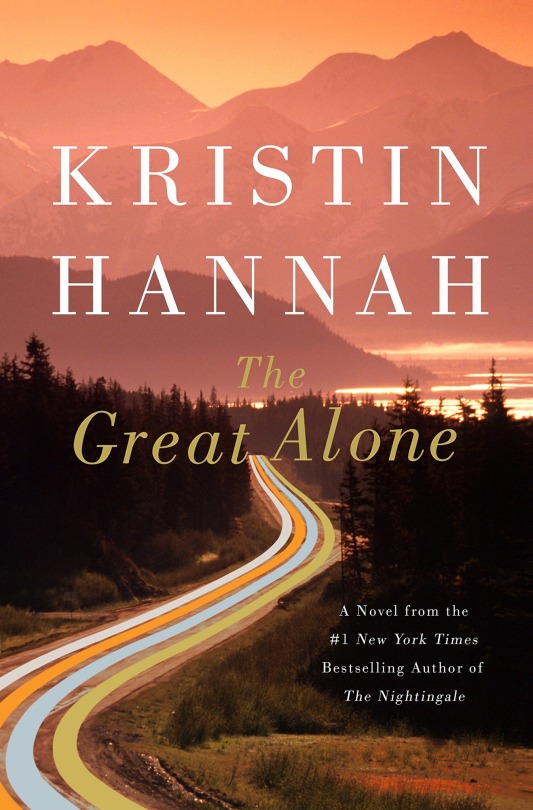
#kristin hannah#the great alone#alaska#books and novels#adventure#journey#homesteading#pacific northwest#booklover#Kristin Hannah the great alone
1 note
·
View note
Text
book recs: feb 2024
(disclaimer: I have spent nearly three months languishing and sullen with post-COVID symptoms and have read, over dec-feb, eighty-one books. this is a ruthlessly streamlined list of recs that does not include, uh, all the rereading of sarah maclean and charlie adhara and georgette heyer books.)
AT FIRST SPITE by olivia dade - what if I moved in next to the man who ruined my engagement to his younger brother, and tried to ruin his life by playing monsterfucking audiobooks really loudly?? a heartfelt and lovely romance that also expertly sets up a great small-town setting for an ongoing series.
THE REFORMATORY by tananarive due - historical horror based on the existence of a real school for boys, clear-eyed and brutal in showing the the effect of racist systems in the 1950s american south. compelling as hell. even if you're not usually into horror, I'd recommend this: the ghost aspect is light-handed and really not as important as the horror of what humans do to other humans.
SOMETHING WILD & WONDERFUL by anita kelly - this is a m/m romance about walking the pacific crest trail which made me see the appeal of very long walks. a miracle! it's gentle and emotional and well put together; the characters really grabbed me.
THE BELL IN THE FOG by lev a.c. rosen - the followup to 'lavender house', and somehow even better?? a historical mystery series featuring a queer private eye in 1950s san francisco who looks into crimes against other queer people. amazing queer history! ACAB! I hope there are fifty more books in this series.
FEAST WHILE YOU CAN* by mikaella clements & onjuli datta - beautiful, greedy, terrifying small-town horror that is also a fucking fantastic, gorgeously written sapphic love story. this one IS for the horror fans. it gave me the absolute creeps but I couldn't put it down.
LADY EVE'S LAST CON* by rebecca fraimow - I described this on bsky as 'if you like Leverage, space opera, old screwball comedies, and dashing sapphics who are at all times spiritually wearing a leather jacket: this one is for you' and I stand by that. huge amounts of fun.
LONG LIVE EVIL* by sarah rees brennan - I will be screaming from here until forever about SRB's first adult fantasy book. if you like the isekai'd-into-a-villain-character setup and want it to be hilarious, genre-savvy and wildly angry and clever, you will roll around in this like a blood-stained mud puddle and then beg for more.
THE LAST HOUR BETWEEN WORLDS* by melissa caruso - really clever and original fantasy about a woman on maternity leave who gets dragged into saving a cocktail party which is falling through increasingly murderous and bizarre dimensions. LISTEN, JUST GO WITH IT. it's a seriously cool adventure.
YOU SHOULD BE SO LUCKY* by cat sebastian - yes, it's another m/m romance about queer history in the mid 20th century, this one between a baseball player and the journalist assigned to write a story about his slump. made me care about baseball. cat is a genius.
*I read these as ARCs, they're not available yet but consider preordering or keep your eye out for them!
347 notes
·
View notes
Text
Imagine that a century or two from now, the eastern half of the United States is conquered by the Canadian Empire, its intelligentsia deported, its land colonized by Canadian immigrants, and its remaining people mostly gradually absorbed into a Neo-Canadian identity. The West reorganizes, developing a new political and cultural center, and comes to regard itself as the "true" United States, with the remnant culture of the East (by now much changed by Canadian rule) as representing an unchanged tradition stretching back to the time of George Washington. The holdout western half is subsequently conquered by the Reformed Mexican Empire, and while most of the population remains in situ, its elite is taken to Mexico City. There, for three or four generations, they do their best to maintain their distinct American identity, focusing on the American "civil religion," the distinctive political ideals and cultural features that mark them out as Americans, and come up with a new way of interpreting their history that allows America to be a perennial idea, something not directly physically tied to the territory of the United States, which no longer exists. They compose a body of historical works based on Washington Irving's rather fabulistic approach to early American history, the half-remembered popular versions of the stories of Columbus and the Pilgrims, the First Thanksgiving, even the Revolutionary War. They don't have access to the original texts anymore--let's say this is all taking place in a post-Collapse North America where long-range travel and communication is difficult and a lot of history has been lost--but they do their best. They append to these books, or include in their text, of history a copy of the Constitution, big chunks of the United States Code, and Robert's Rules of Order.
Subsequently, the Empire of Gran Columbia invades, conquers southern and central Mexico, and its Emperor lets the captive Americans go home. They return north, mostly to California, find that the version of American history and civics that is remembered there isn't the same as the version they have (not that the Californian one is correct--the Mexican Empire has suppressed English-language education and high culture in its Aztlani provinces), and set about reforming and reorganizing the Western States (as they're now called) to be more in line with the forms they brought back from the exile. In the meantime, other bits of important literature start being kept in libraries next to copies of the received histories: some bits of early American literature, like Hawthorne, the Song of Hiawatha, some highly abridged Herman Melville, Thomas Paine--heck, even some John Locke, and quotes or fragments from Shakespeare. Some traditionalists now argue the capital of the United States has always been located in San Francisco, and that Washington, D.C. only because the capital later, under the influence of Eastern heretics.
In the following centuries, the Western States retain their independence for a time, but eventually become a secondary battleground for a lot of other empires--the Mexicans, the Canadians, the Pan-Pacific Federation, and so forth. American culture remains distinctive, insulted in part by its unique traditions, though now everybody speaks Future Spanish, and only learns English to read the old texts. In this period additional material, including later compositions, continues to accrete, forming a distinct body of sacred American scripture, although it does not exist in a single canonical form. Attempts to reconcile distinct sources, like more literal and historically-grounded accounts versus the simplified narratives of figures like Irving, produce hybrid texts that sometimes are full of internal conflicts.
Oh, and through all this, some institutions of American government like the Supreme Court still function, although their rulings only apply to Americans, and there isn't much in the way of a federal bureaucracy.
Finally the Great and Sublime Brazilian Potentate conquers most of the Americas, sets up an American client state that roughly coincides with the heartland of the old Western States (California, Oregon, most of Washington and Nevada), and allows the Americans to elect their own President (subject, of course, to Brazilian approval). During this period, an apocalyptic street preacher from Los Angeles claims to have inherited the authority and power of George Washington, and is executed by the Brazilians; his later followers point to the prophecies of Emperor Norton, and out-of-context bits of a Quebecois translation of Moby-Dick and some Mark Twain stories to say no, really, he was George Washington. Inexplicably, a version of this religion becomes the dominant faith of the Brazilian Empire before it collapses. But long before then the American state in California fails, crushed when it tries to revolt against Brazilian rule; the remnant Easterners likewise dwindle down to only a few hundred souls living in a village in Alexandria, Virginia. Centuries from now, as the descendants of the descendants of the Brazilians colonize Mars, they will point to the sacred Americanist scriptures, the Neo-Americanist narratives of their prophet's life, and the letters written by the early leaders of Neo-Americanism, and say, "all of this was written by the spirit of George Washington, and is free from contradictions." Meanwhile the remnant Americanists, who have been writing about Americanism and how it applies to their everyday lives in the centuries since, and whose commentary has formed around the copies of the last editions of the U.S. Supreme Court Reporter (SCOTUS managed to outlast the final American state by a hundred years or so) plus the thoughts of the remaining Americanist community in Mexico, continue to regard their traditions as the unbroken and unaltered practice of American culture, politics, and ideals as they existed since the Revolutionary War.
This is, as far as I can tell, approximately how the Bible was composed.
1K notes
·
View notes
Text

I have THE biggest, BEST news EVER--
I GOT A BOOK CONTRACT!!!!!!!!
I am exceptionally pleased to announce that I have just signed a contract with Ten Speed Press (a division of Penguin Random House) to publish...
The Everyday Naturalist: How to Identify Animals, Plants, and Fungi Wherever You Go!
It is slated for publication in early Summer 2025, and will be written for anyone who wants to be able to identify the living beings around them regardless of educational level or experience. A HUGE thank you to my literary agent Jane Dystel of Dystel, Goderich & Bourret LLC, and my editor at Ten Speed Press, Julie Bennett!
This isn't just another field guide--it's a how-to book on nature identification that helps you go from "I have no idea what this animal/plant/fungus is and I don't know where to start" to "Aha! I know how to figure out what species I'm looking at/hearing!" Those familiar with my nature ID classes know that I emphasize skills and tools accessible to everyday people. Whether you're birdwatching, foraging, or just enjoying the nature around you, my goal is to help you be more confident in figuring out what living beings you encounter wherever you go--and not just in the Pacific Northwest.
The Everyday Naturalist will not only explain what traits you need to pay attention to like color, size, shape, location, etc. and how to use them to differentiate among similar species, but will also detail how and when to use tools like apps, field guides, and more. (And given the current kerfuffle about A I generated foraging books, I will of course include information on how to determine the veracity of a given book or other resource.) And my editor and I have already been discussing some great additions to the book that will make it even more user-friendly!
Are you excited about this? I certainly am! I wanted to wait until the pixels were dry on the contract before going public with this (though my newsletter subscribers got to hear about it last month, lucky them!) It still doesn't feel real, but I'm already working on the manuscript so it'll sink in soon enough.
I will, of course, keep you all apprised of my progress because this project is going to be a big part of my life over the next several months as I write and edit and write and edit and wash, rinse, repeat. So keep your eyes on this space for updates (and feel free to add yourself to my monthly email newsletter here, too!)
#nature#nature identification#animals#plants#fungi#field guide#mushrooms#foraging#birding#birdwatching#scicomm#science communication#books#nonfiction books#publishing#wildlife#science#biology#botany#mycology
982 notes
·
View notes
Text
some smaller bookstores, presses, and museum shops to browse and know about! Most support smaller presses, diverse authors and authors in translation, or fund museums and arts research)
(disclaimer: the only three I’ve personally used are the Yiddish book center, native books, and izzun books! Reccomend all three. Also roughly *U.S. centric & anglophone if people have others from around the world please feel free to add on
birchbark books - Louise Erdrich’s book shop, many indigenous and First Nations books of a wide variety of genres including children’s books, literature, nonfiction, sustainability and foodways, language revitalization, Great Lakes area focus (https://birchbarkbooks.com/)
American Swedish institute museum store - range of Scandinavian and Scandinavian-American/midwestern literature, including modern literature in translation, historical documents, knitters guides, cookbooks, children’s books
https://shop.asimn.org/collections/books-1
Native books - Hawai’i based bookstore with a focus on native Hawaiian literature, scholarly works about Hawai’i, the pacific, and decolonial theory, ‘ōlelo Hawai’i, and children’s books Collections | Native Books (nativebookshawaii.org)
the Yiddish book center - sales arm of the national Yiddish book center, books on Yiddish learning, books translated from Yiddish, as well as broader selection of books on Jewish history, literature, culture, and coooking https://shop.yiddishbookcenter.org/
ayin press - independent press with a small but growing selection of modern judaica https://shop.ayinpress.org/collections/all?_gl=1kkj2oo_gaMTk4NDI3Mzc1Mi4xNzE1Mzk5ODk3_ga_VSERRBBT6X*MTcxNTM5OTg5Ny4xLjEuMTcxNTM5OTk0NC4wLjAuMA..
Izzun books - printers of modern progressive AND masorti/trad-egal leaning siddurim including a gorgeous egalitarian Sephardic siddur with full Hebrew, English translation, and transliteration
tenement center museum -https://shop.tenement.org/product-category/books/page/11/ range of books on a dizzying range of subjects mostly united by New York City, including the history literature cookbooks and cultures of Black, Jewish, Italian, Puerto Rican, First Nations, and Irish communities
restless books - nonprofit, independent small press focused on books on translation, inter and multicultural exchange, and books by immigrant writers from around the world. Particularly excellent range of translated Latin American literature https://restlessbooks.org/
olniansky press - modern Yiddish language press based in Sweden, translators and publishers esp of modern Yiddish children’s literature https://www.etsy.com/shop/OlnianskyBooks
https://yiddishchildrensbooks.com/ - kinder lokshen, Yiddish children’s books (not so many at the moment but a very cute one about a puffin from faroese!)
inhabit books - Inuit-owned publishing company in Nunavut with an “aim to preserve and promote the stories, knowledge, and talent of Inuit and Northern Canada.” Particularly gorgeous range of children’s books, many available in Inuktitut, English, French, or bilingual editions
https://inhabitbooks.com/collections/inhabit-media-books-1
rust belt books - for your Midwest and rust belt bookish needs! Leaning towards academic and progressive political tomes but there are some cookbooks devoted to the art of the Midwest cookie table as well https://beltpublishing.com/
#Books#shopping reccomendations#Targeted/smaller and more specific presses can be jsut as dangerous even more so as you find so many things you didn’t know you needed!#(But you do! You so very much d)#Esp if you’re feeling like something beyond target book club picks lol
170 notes
·
View notes
Note
Hi Mike! I hope you're having a great day. I was just wondering if you could tell us where Midnight Mass is set? I know Crockett Island is based on the real-life Tangier Island which is in Virginia. In Book I, Riley gets a letter from Annie that says Washington, but I always imagined Crockett to be off the coast of Maine (or the East Coast in general.)
We were intentionally vague about where the fictional island itself was located. It was written to be in the Chesapeake in the early drafts of the novel, and because we filmed in Vancouver I had considered making it clear that it was in the Pacific Northwest, but by the time we were actually making the show I thought it was stronger to let it be less specific. It made the parable feel a little more potent, and the story a little more universal.
177 notes
·
View notes
Text
When Is a Small Press a Good Fit?

When it comes to publishing, many writers will think about big publishers first. However, there are a lot of different publishing options out there to explore. NaNo participant and author, Clara Ward, talks about their experience publishing with a small press and gives you questions to consider while you think through your publishing options!
NaNoWriMo inspired me to write. Signing with a small press gave me the support I needed to publish a book I love.
I’d published books before—starting with NaNoWriMo sponsor deals in the early days of online publishing—but I never had the right skill set to promote those books. As a result, they never truly found their audience.
In November of 2020, I poured my heart into a genre-blurring near-future tale of sailing across the Pacific and building a neurodiverse, queer, and possibly magical chosen family. In 2021, I titled it Be the Sea and asked myself: What am I going to do with that?
1. Are you looking for fame or family?
Small presses are as varied as the people who form them. If you read widely, you may already have a treasured book on your shelf from your publisher-to-be. Try asking NaNoWriMo friends who share your interests if they’ve discovered any surprising or emerging sources for great reads. (At the very least, you may find books you’ll love in unexpected places!)
Admittedly, a small press doesn’t have a fortune to spend on paving your path to fame. But I have never felt as seen as when my soon-to-be publisher, E.D.E. Bell at Atthis Arts, wrote back, “I’m really in love with what you are doing and would like to talk about it.”
2. Do you have the bandwidth for working with others?
Even with the most supportive small press, you may have to push outside your comfort zone. I know authors who love the absolute control and freedom of self-publishing. For a time, I felt very comfortable just posting my NaNoWriMo fanfiction novels on Archive of Our Own. At most, I had one or two beta readers to offer feedback on those works. Whereas E.D.E. told me in one of our earliest conversations that in addition to our three rounds of editing we’d need “a good number of betas” to cover the range of topics we were working on together.
I was delighted! I knew what I’d written was ambitious, and I welcomed all the feedback I could get. But it turns out, each extra person in a process adds new challenges and delays. I had to stretch my empathy as well as my publishing timeline because, to quote E.D.E. again: “It’s a lot of emotion (as well as brain cycles) to go through...” Outside perspectives will only improve your writing if you are willing to work with them, to truly listen and learn.
3. Can you handle the two-way commitment?
No form of publishing is easy. The myth that authors write while others handle business and promotion is not true at the top, and certainly not with small presses. In my experience, working with Atthis Arts was like joining a team or chosen family. Beyond certain paid tasks, such as editing and sensitivity reading, I discovered a community of authors who freely offered coaching before my first public reading, social media boosting, tips for author webpages, and an extra pair of eyes on letters requesting bookshop readings or other events. While not all small presses work the same way, this supportive culture proved to be an excellent fit for me. Naturally, I wanted to give back whenever possible.
Small presses can only succeed with community. This month, as I promote the launch of Be the Sea at bookshops in Mountain View, Davis, and Sacramento, I will be introducing many Californians to my Michigan-based small publisher, Atthis Arts. When I stand up as a panelist at Norwescon in Washington state or at various science, library, or Pride events later in the year, I’ll be promoting more than Be the Sea by Clara Ward. I’ll give back by sharing my appreciation for small presses, the supportive and inclusive practices they can normalize, and the opportunities they open up for future writers and readers.

Clara Ward lives in Silicon Valley on the border between reality and speculative fiction. Their latest novel, Be the Sea, features a near-future ocean voyage, chosen family, and sea creature perspectives, while delving into our oceans, our selves, and how all futures intertwine. Their short fiction has appeared in Strange Horizons, Decoded Pride, Small Wonders, and as a postcard from Thinking Ink Press. When not using words to teach or tell stories, Clara uses wood, fiber, and glass to make practical or completely impractical objects. More of their words along with crafted creations can be found at: https://clarawardauthor.wordpress.com
Photo by Hümâ H. Yardım on Unsplash
171 notes
·
View notes
Text
i played through alan wake for the first time. here are some things i loved along the way:
the literal first words spoken in the game being "stephen king once wrote..." as alan tries to gas himself up as a writer
alan only being able to jog for a little while before getting tuckered out because you're playing as a novelist
alan feeling the need to point out an extremely obvious The Shining reference in his narration
you put the lime in the coconut
all of the random shit the taken say, but in particular stucky going on about his hot dog rankings
looking at the novels on alan's shelf and realizing how fucking huge he made his name compared to the actual book titles
all the episodes of night springs, but in particular "the quantum suicide" and "absence of creativity" ("Is that too moronic, indeed? Who can tell? It's a fine line between the stupid and the sublime... in Night Springs.")
barry's puffy red jacket being the brightest, most saturated color present in any scene he's in
agent nightingale being a direct inversion of cooper from twin peaks, who HATES small pacific northwest towns, AND having to work with their sheriff's departments, AND their coffee, AND their trees!!
the never-ending list of author names nightingale will call alan
the evil bulldozer that tries to kill you, foreshadowed earlier by the manuscript page "Wake Attacked by a Bulldozer"
one of the patients at the lodge being a game dev and hartman going "he works on... video games. it's trash, of course. but it does involve some small creative effort"
when you're talking to the old gods of asgard at the lodge and tor is routinely smacking the table with his squeaky hammer the entire time
alan and barry driving with the cardboard cutout of alan in the back seat
the rock concert segment
alan jumping like this
the dopefish poster upstairs in the bookstore
the camera panning over during the live action talk show bit to reveal that the other guest sitting next to alan is sam lake himself, who does the max payne face when prompted by the host
the fact that this game has driving segments and you can do donuts and drift into enemies
and, of course... the energizer and verizon product placement
great game
212 notes
·
View notes
Text
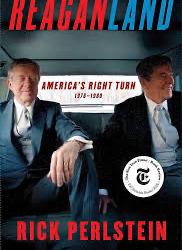

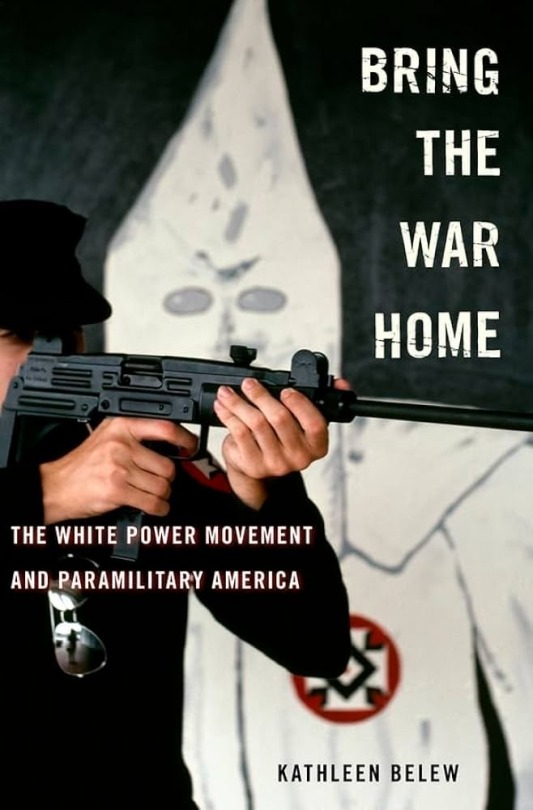
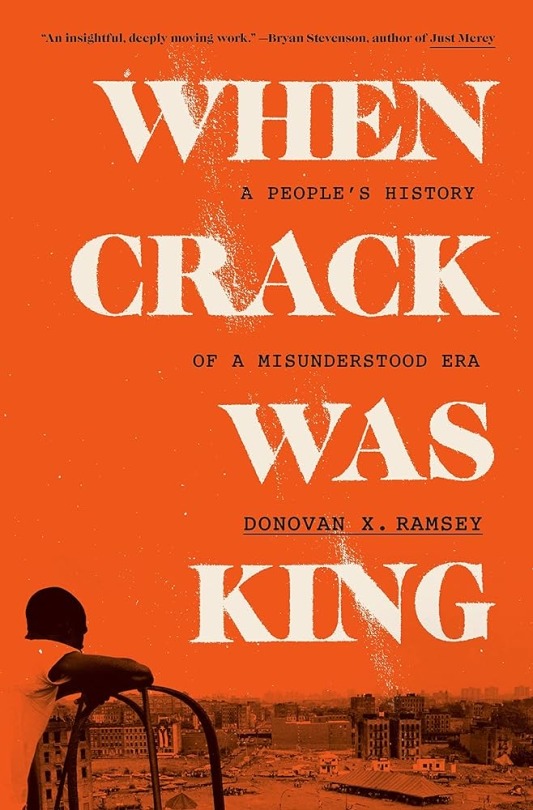
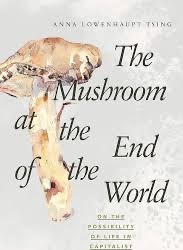
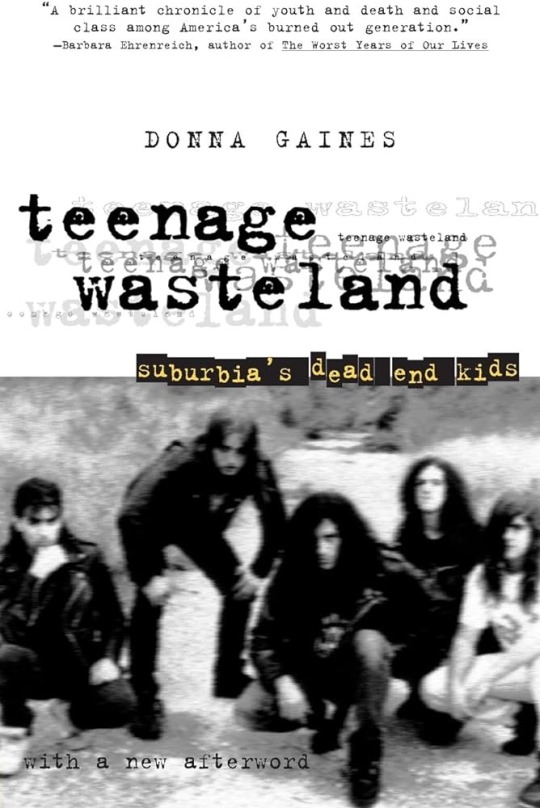

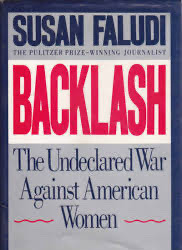
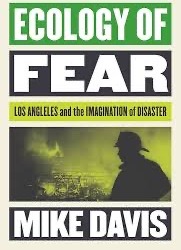
🎶🎶When You're Living in Amerrrrricaaaa at the End of the Millennnnniuuuumm🎶🎶: My favorite books about life in late 20th century America, with an emphasis on how the conversative turn in American politics affected lives on the margins: Wheel of Fortune, Sally Ride, Heavy metal suicide Foreign debts, homeless vets, AIDS, crack, Bernie Goetz* , etc:
(descriptions under the cut)
Rick Perlstein, Reaganland: America’s Right Turn. This is where you start. And honestly, the Reaganland Quartet, which this is the last volume of, is the Great Epic Fantasy of actual 20th century history.
Sarah Schulman, Let the Record Show: A Political History of ACT-UP New York 1987-1993. This book had a minute and then just faded from public discourse, which makes me so unbelievably sad. I know it’s long, but it’s riveting and energizing. This should be the book that We All Read and everyone peer pressures everyone else to read.
Kathleen Bellew, Bring the War Home: The White Power Movement and Paramilitary America. Another foundational classic about how the post-Vietnam War militarization of the white power movement led to the Oklahoma City bombing. It's also really good context for a lot of the great works that have come out recently about Waco. Also you can read this book instead of swallowing your dignity and giving zoom-masturbator Jeffrey Toobin your money.
Donovan X Ramsey, When Crack Was King: A People’s History of a Misunderstood Era. This could very well be the best book that came out this year, just a beautiful, empathetic, humanist view of the crack epidemic that perfectly balances the broader context with oral history.
Anna Lowensapt Tsing, The Mushroom at the End of the World: This is a weirder choice, but I think it aligns well with alot of the other topics on this list: the consequences of the Vietnam War, the economic collapse in the Pacific Northwest, a new kind of underclass in the global capitalist system...but about mushrooms.
Donna Gaines, Teenage Wasteland: Suburbia’s Dead End Kids. This is a journalistic work written in the 1980s but I think the social panic about (white) teenage suicide, heavy metal, satanism, etc is something that has gotten somewhat forgotten in histories of the 1980s. One thing that feels deeply Of that Time is how the end of the cold war made it harder for working class teenagers to "just" join the military.
Jason LaPerle, American Dream: Three Women, Ten Kids and a Nation’s Drive to End Welfare: Another deeply empathetic portrait of three women in Milwaukee and how the Clinton welfare reforms affected their lives.
Susan Faldo, Backlash. Look, you really do have to read this classic 1980s feminist brick. You do. It's infurirating and important and pretty fun too.
Mike Davis, Ecology of Fear: Los Angeles and the Imagination of Disaster: Mike Davis is the grim, communist Joan Didion; I love him and miss him. Davis also co-wrote a massive history of Los Angeles in the 1960s that I really recommend and an extremely non-massive history of the car bomb that I recommend above all.
234 notes
·
View notes
Note
I’ve been reading some craft books and online posts about the world building because my story is an urban fantasy set in present day US, in a fictional town, and theres not a secondary world where the fantasy happens, it’s all in the real world, except the magic is a secret that only certain people know about, but all of the resources I find about world building only talk about fantastical worlds that exist by themselves and not the kind of more subtle world building that I’d have to do. Do you have any tips?
Guide: Creating a Fictional Town in the Real World
Step 1 - Choose Your Location - There are two ways to go about choosing a location for your fictional town. One is to go the "Springfield U.S.A." route, ala The Simpsons, and be vague about the specific location (borough, parish, district, county, region, state, or province) and instead give a broader geographic region... "the East Coast," "the Pacific Northwest," "Central Canada," Northern Scotland," etc. The other option is to go ahead and put your fictional town in a specific location. Just figure out where (for example, somewhere outside of Des Moines, Iowa) and go to Google Maps, click on satellite view, then start zooming in on big empty areas. Choose a place big enough to fit a town. Yes, in reality it's probably farm fields, pasture, or someone's property, but that doesn't matter. You don't have to actually show it on a map. It's just a plausible spot to build your town. Now you can measure how far it is to other places, you know what highways to take to get to it. You can even do street view to get the lay of the land, see what the landscape looks like and try to envision the buildings there. You can also use what's there to create parks, popular recreational areas, and anything else your town needs.
Step 2 - Choose Your Inspiration - Even when you're creating a fictional town, it's still a good idea to use a real town (or two, or three) from that general area as inspiration for your town. For a fictional town in Des Moines, I would zoom in on the map to find a nearby town of similar size... like Elkhart, then I can take a look around to see what it's like. Just looking at the map, I can see they have a couple of churches, a couple baseball fields, a very small main street/downtown area with a couple shops and restaurants, a post office, a few different neighborhoods, and a cemetery. This would be a great model for a small fictional town outside of Des Moines. And, as I said, you could look at a couple other sand combine them. Once you have your inspiration town/s, you can walk around on Google Maps street view, go to the town's web site, watch a tour on YouTube (if one exists), or look up pictures in Google Image search.
Step 3 - Start Planning - This is the really fun part! First, you might want to draw a basic map of your fictional town using your inspiration town/s as a guide. This doesn't have to be a pretty map... just a basic line drawing to help you envision where everything is. Think about some of the basic things this town might have, like the ones I listed in step two, and any other things you might want your town to have, like maybe a library, a hospital, a city hall, school, and maybe a movie theater. It might even be helpful and fun to put together a collage of pictures to represent your town so you've got something in mind as you write about it. You can even choose representatives for specific locations in your story, like your MC's house, school, and their favorite hangout.
Step 4 - Naming Your Town - Start by looking at the kinds of town names that surround your town. Look for common naming conventions... suffixes like -ton, -ville, -dale, -burg, -wood, -field, etc. Words in a particular language, like a lot of French-inspired town names, or towns with geographical terms (lake, hill, valley, river, canyon, gap, etc.) My guide to Naming Locations has additional tips.
Step 5 - Populate Your Town and Give it a History - Last but not least, make up a little history for your town, again, using surrounding towns as inspiration. Who founded it? When was it founded? What's the town's main industry? What are the people like in this town? What jobs do they have? What do they do for fun?
Here are some other posts that might help:
Five Things to Help You Describe Fictional Locations
Setting Your Story in an Unfamiliar Place
WQA’s Guide to Internet Research
Happy writing!
•••••••••••••••••••••••••••••••••
I’ve been writing seriously for over 30 years and love to share what I’ve learned. Have a writing question? My inbox is always open!
♦ Questions that violate my ask policies will be deleted!
♦ Please see my master list of top posts before asking
♦ Learn more about WQA here
91 notes
·
View notes
Photo

Nanea Mitchell is a half Scottish-American, half Native Hawaiian girl living in Honolulu, Hawaii in 1941 during the attack on Pearl Harbor. Her release was met with a lot of surprise. Going back to WW2, it seemed like AG was running out of history. But Nanea is pretty different than Molly. She covers the beginning of the war and the Pacific theater while Molly covers the end of the war and the European theater.
More than anything else, Nanea represents Native Hawaiians in the historical line. Being post BeForever, she only received two books. The two book format might seem to fit covering one event like Pearl Harbor better, but honestly, with Hawaiian history and culture and the beginning of WW2, there is SO MUCH to cover. I think the traditional six books for Nanea would be fantastic.
To start with, I’d like to see some before and after. Appropriating Pacific Islander culture was a major trend in the 1930s, and the Hawaiian tourism industry really took of. It would be interesting to see Nanea’s reaction to White actresses wearing sarongs and leis and poorly dancing the hula on the silver screen, or seeing sacred tikis reduced to cheap bar kitsch.
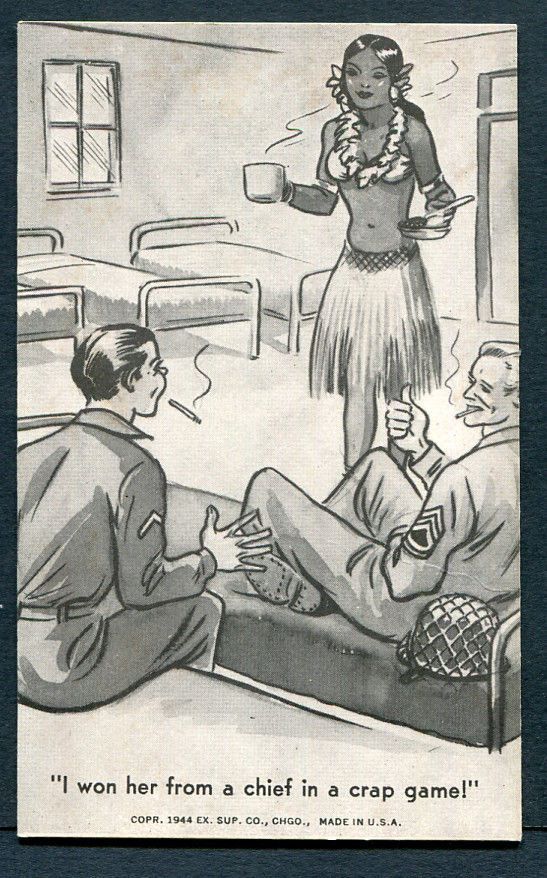
You can listen to or read the episode of the food history podcast Gastropod about tiki bars.
As far as the Pearl Harbor attack goes, one of the enduring and most fascinating parts of history is the normalcy that exists during crisis. My middle school orchestra performed at Disney World two weeks after 9/11 when people were still terrified of going into major tourist places for fear of attack. We visited Disney World in September every year and had the date scheduled in advance, we weren’t gonna let some fucking terrorists stop us. I’d love to see Nanea just being a kid in the middle of chaos.
And then there’s just the island’s history! There’s so many stories you could work out with Nanea just learning Hawaiian history!
Nanea’s style of blouse is called a tea-timer. It became popular in the mid-20th century after being appropriated from the Chinese cheongsam.

(SneakyTiki)

Her shorts are a sailor-inspired design called moku shorts, but I can’t find any information about their history.
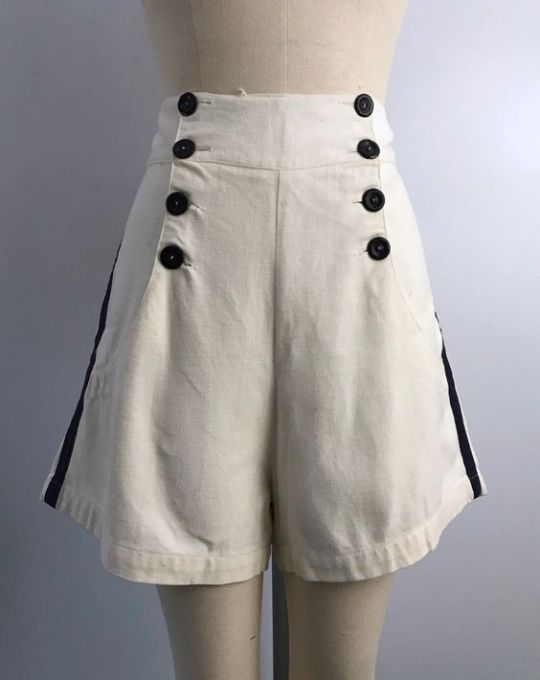
(Ritual Vintage, credit @in-pleasant-company)
Her little necklace is made out of (imitation) celluloid and seashells.

(Garden Party Collection Vintage Jewelry)
Here’s a pretty great article about Native Hawaiian reaction to Nenea’s release.
540 notes
·
View notes
Note
Any book recommendations? That remind you of fanfics you write? That inspire you? Or you just plain like?
Pretty much anything by Tamora Pierce, she's the kind of writer I want to be. The Protector of the Small series is my favorite of the bunch, but you do kind of have to read Song of the Lioness and The Immortals first, which are both also extremely good. They're all four-book series but I race right through them.
Favorite Neil Gaiman books are: Good Omens, The Graveyard Book, and The Ocean at the End of the Lane.
Iron Widow by Xiran Jay Zhao is Pacific Rim meets Handmaid's Tale meets Hunger Games in a science fantasy version of China. Great book if you love it when a female character is also a rabid honey badger.
The Gentleman's Guide to Vice and Virtue by Mackenzie Lee. Bisexual british lordling goes on his Grand Tour with his best friend/crush, hijinks and manhunts ensue. I haven't read the other two books of the trilogy yet but I intend to.
Currently rereading The Lord of the Rings and loving it.
Tailchaser's Song by Tad Williams: cat-based xenofiction, but tone-wise it's more Watership Down than Warrior Cats. Rich animal fantasy with a kiss of cosmic horror.
Big fan of Jane Austen, favorites are Northanger Abbey and Pride and Prejudice. In the same vein, Evelina by Fanny Burney came out before Jane Austen's novels but occupies a similar vein of romantic satire of 18th century British society.
The original Arthur Conan Doyle Sherlock Holmes stories are genuinely so good, I need to reread The Hound of the Baskervilles.
The Redwall series basically raised me as a child. A lot of my feelings about how stories should go come from what I absorbed from Redwall.
If graphic novels count, Mouse Guard by David Petersen.
63 notes
·
View notes